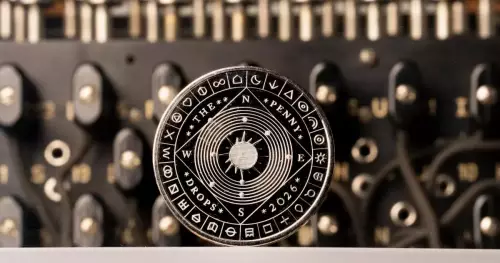Explore how our perception of randomness influences our decisions, from coin flips to moral judgments. Do we truly understand the role of chance in our lives?

Ever flipped a coin and felt like the outcome should have gone your way? You're not alone. The interplay of randomness, perception, and the life choices we make is a fascinating, and often frustrating, part of being human. It's about understanding that sometimes, things just happen, and our brains struggle to accept it.
The Illusion of Control
A recent study in the Journal of Personality and Social Psychology highlights this perfectly. Researchers found that when a coin flip goes against us, we perceive the process as less fair, especially if our opponent flipped the coin. It's wild, right? Even though we intellectually grasp the concept of a 50/50 chance, our emotions often tell a different story. We want to believe we have more control than we actually do.
Why We Struggle with Randomness
Think about it: casinos thrive because people believe they can beat the odds, despite the inherent randomness of games like roulette. We assign meaning and patterns where they don't exist, driven by the feeling that we can influence the outcome. It’s why superstition exists! But as the study suggests, this tendency seeps into more serious aspects of life.
Moral Luck: When Randomness Has Consequences
The study's authors point to the concept of "moral luck," where individuals are judged for outcomes influenced by factors beyond their control. The classic example? Two drunk drivers, one who hits a pedestrian and one who doesn't. While both made the same irresponsible choice, the first driver faces far harsher consequences, simply due to a random, tragic event. This shows how we grapple with fairness when randomness throws a wrench into the works.
So, What's the Takeaway?
Randomness is a constant in our lives, whether we acknowledge it or not. Recognizing its influence, and our tendency to misinterpret it, can lead to better, more rational decision-making. It’s about accepting that sometimes, things are just a matter of chance.
A Final Thought
Next time you're faced with a seemingly random event, take a breath and remember the coin flip. Maybe, just maybe, it'll help you make a less emotionally charged, and ultimately wiser, choice. After all, who needs more stress? Now go out there and embrace the beautiful, chaotic randomness of life, ya'll!
Disclaimer:info@kdj.com
The information provided is not trading advice. kdj.com does not assume any responsibility for any investments made based on the information provided in this article. Cryptocurrencies are highly volatile and it is highly recommended that you invest with caution after thorough research!
If you believe that the content used on this website infringes your copyright, please contact us immediately (info@kdj.com) and we will delete it promptly.












































![Ultra Paracosm by IlIRuLaSIlI [3 coin] | Easy demon | Geometry dash Ultra Paracosm by IlIRuLaSIlI [3 coin] | Easy demon | Geometry dash](/uploads/2026/01/31/cryptocurrencies-news/videos/origin_697d592372464_image_500_375.webp)










































